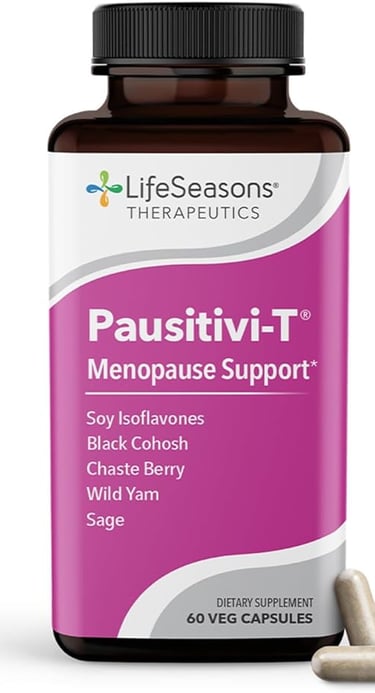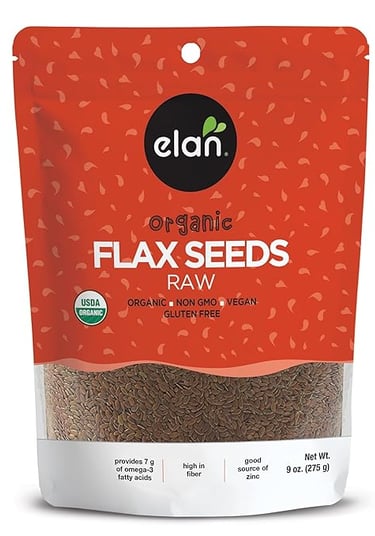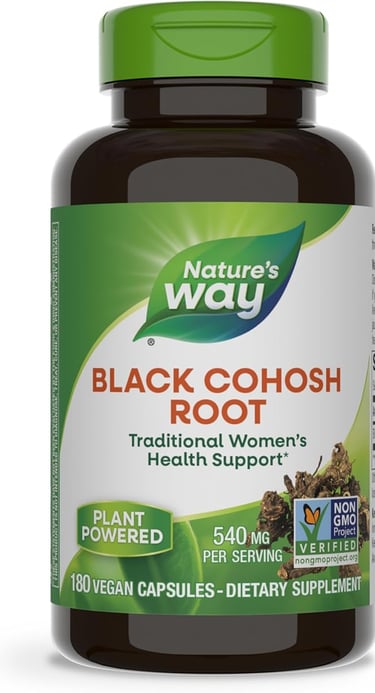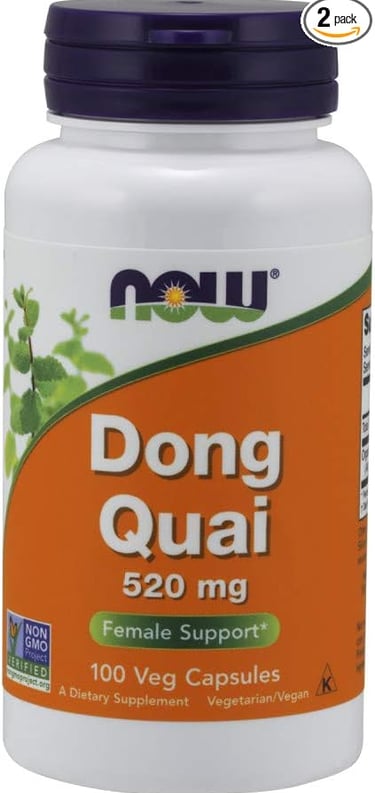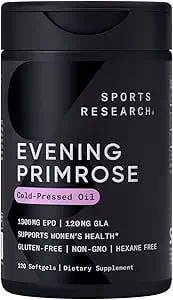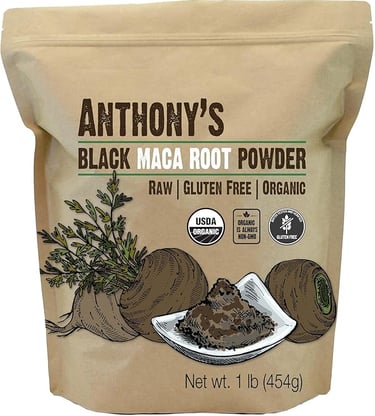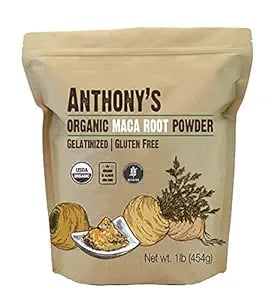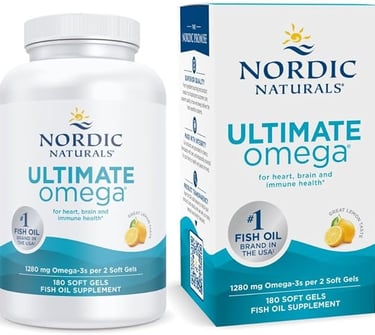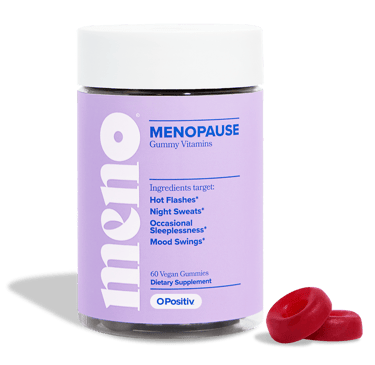Natural Remedies for Menopause: A Comprehensive Guide to Ease Menopause Symptoms
Discover effective natural remedies for menopause symptoms. This expert guide covers herbs, supplements, lifestyle changes, and includes real user experiences to help you navigate this transition naturally.
Isabella Ramirez
1/13/202515 min read


Table of Contents
Menopause is a significant milestone in a woman’s life, marking the end of her reproductive years and the beginning of a new chapter. This natural transition, while often challenging, doesn't have to be a battle. Increasingly, women are turning to holistic approaches to manage symptoms and maintain overall well-being during this time of change.
Understanding Menopause: A Natural Transition
Menopause is a natural biological process that occurs when a woman’s ovaries stop producing eggs, leading to a decrease in the hormones estrogen and progesterone. This hormonal shift typically occurs between the ages of 45 and 55 but can happen earlier or later in some women. Menopause is officially diagnosed when a woman has gone 12 consecutive months without a menstrual period.
Common Symptoms of Menopause
The symptoms of menopause can vary widely from woman to woman, but they are generally related to the decline in estrogen and progesterone levels. Some of the most common symptoms include:
Hot Flashes: Sudden, intense feelings of heat, often accompanied by sweating and a flushed face.
Night Sweats: Excessive sweating during the night, which can disrupt sleep.
Insomnia: Difficulty falling or staying asleep, often exacerbated by night sweats.
Mood Swings: Rapid changes in mood, including irritability, anxiety, and depression.
Vaginal Dryness: Reduced vaginal lubrication, leading to discomfort during intercourse.
Weight Gain: Changes in metabolism that can lead to weight gain, particularly around the abdomen.
Hair Thinning: Loss of hair or thinning of the hair on the scalp.
Decreased Libido: A reduction in sexual desire or arousal.
Joint Pain: Discomfort in joints, often exacerbated by hormonal changes.
Natural Remedies for Menopause: A Holistic Approach
While menopause is a natural part of aging, its symptoms can be managed effectively with the right natural remedies. Below, we explore several evidence-based options that can help alleviate menopause symptoms and support overall well-being.
1. Phytoestrogens: Plant-Based Hormone Support
Phytoestrogens are naturally occurring plant compounds that mimic the effects of estrogen in the body. By binding to estrogen receptors, they can help balance hormone levels and reduce symptoms such as hot flashes and night sweats.
Key Sources of Phytoestrogens
Soy Products: Foods like tofu, tempeh, soy milk, and edamame are rich in isoflavones, a type of phytoestrogen. Research suggests that regular consumption of soy products can reduce the frequency and severity of hot flashes and night sweats.
Flaxseeds: Flaxseeds contain lignans, another type of phytoestrogen. These tiny seeds can be ground and added to smoothies, yogurt, or oatmeal for an easy way to incorporate them into your diet.
Legumes: Beans, lentils, and chickpeas are excellent sources of phytoestrogens, providing additional hormone-balancing benefits.
Recommended Product
Consider trying this soy isoflavone supplement for a convenient and concentrated source of phytoestrogens.
2. Black Cohosh: A Trusted Herbal Remedy
Black cohosh (Cimicifuga racemosa) is a perennial plant native to North America that has been used for centuries to treat women’s health issues, including menstrual irregularities and menopause symptoms. It is particularly effective in reducing hot flashes and night sweats.
How Black Cohosh Works
Black cohosh contains compounds that have estrogen-like effects, which may help alleviate menopause symptoms. It is believed to work by binding to serotonin receptors in the brain, which can influence temperature regulation and mood.
Dosage and Usage
Forms: Black cohosh is available in various forms, including capsules, tablets, tinctures, and teas.
Dosage: A typical dose is 20-80 mg of black cohosh extract taken once or twice daily.
Safety: Consult with a healthcare provider before starting any new supplement, especially if you have liver issues or are taking other medications.
Scientific Support
Numerous studies have shown the effectiveness of black cohosh in reducing menopause symptoms. A meta-analysis published in Obstetrics & Gynecology concluded that black cohosh is a safe and effective alternative to HRT for the treatment of hot flashes.
Recommended Product
User case
Sarah, 52, reports, "After taking black cohosh for a month, I noticed a significant decrease in my hot flashes. They went from 10-12 per day to just 2-3."
3. Dong Quai: The "Female Ginseng" for Hormonal Balance
Dong Quai has been used for centuries in Traditional Chinese Medicine to support women's health and balance hormones during menopause. It is often referred to as "female ginseng" for its ability to improve blood circulation, reduce inflammation, and alleviate menopause symptoms like hot flashes, night sweats, and vaginal dryness.
Benefits of Dong Quai
Hormonal Balance: Dong Quai helps regulate estrogen levels, which can ease symptoms such as hot flashes and mood swings.
Menstrual Health: For women going through perimenopause, Dong Quai may help reduce irregular periods and menstrual cramps.
Bone Health: Some research suggests that Dong Quai can help prevent bone loss, which is a concern for postmenopausal women.
Scientific Support
A study published in The Journal of Alternative and Complementary Medicine found that Dong Quai, when used in combination with other herbs, may help reduce the severity of menopausal symptoms. However, more research is needed to understand its full effects.
Recommended Product
Now Foods Dong Quai. For a high-quality Dong Quai supplement, check out this herbal supplement.
User case
Emma, 53, shares, "I've been taking dong quai for about three months now. I've noticed a significant reduction in my hot flashes, and I feel more balanced overall. It's been a game-changer for me."
4. Red Clover: Balancing Hormones Naturally
Red clover (Trifolium pratense) is a plant rich in isoflavones, making it an excellent source of phytoestrogens. It is widely used to relieve menopause symptoms such as hot flashes, night sweats, and bone density loss.
How Red Clover Works
The isoflavones in red clover bind to estrogen receptors in the body, helping to balance hormone levels. Red clover is also thought to have a protective effect on bone health, which is particularly important for postmenopausal women at risk of osteoporosis.
Dosage and Usage
Forms: Red clover is available in various forms, including teas, tinctures, capsules, and extracts.
Dosage: The recommended dosage varies depending on the form, but a typical dose is 40-80 mg of isoflavones daily.
Safety: Red clover is generally safe but should be used with caution in women who have a history of hormone-sensitive conditions, such as breast cancer.
Scientific Support
A review of studies published in Menopause found that red clover isoflavones can significantly reduce the frequency and severity of hot flashes. Additionally, red clover may improve bone mineral density, making it a beneficial supplement for postmenopausal women. A study in Obstetrics and Gynecology International found that red clover isoflavones significantly decreased menopausal symptoms compared to placebo (Ghazanfarpour et al., 2015).
Recommended Product
For a calming, hormone-balancing beverage, try this red clover tea. Swanson Red Clover Extract.
User case
Linda, 49, shares, "Red clover tea has become my daily ritual. It's helped with my mood swings and I feel more balanced overall."
5. Evening Primrose Oil: Alleviating Night Sweats and Mood Swings
Evening primrose oil is extracted from the seeds of the evening primrose plant and is rich in gamma-linolenic acid (GLA), an omega-6 fatty acid with anti-inflammatory properties. It is commonly used to relieve symptoms of menopause, including night sweats, mood swings, and breast tenderness.
How Evening Primrose Oil Works
GLA is believed to help regulate hormone levels and reduce inflammation, which can alleviate menopause symptoms. It also supports overall skin health, making it a good option for women experiencing dryness or irritation.
Dosage and Usage
Forms: Evening primrose oil is typically available in capsule form.
Dosage: A standard dose is 500-1000 mg of evening primrose oil daily.
Safety: Evening primrose oil is generally safe for most women, but consult with a healthcare provider if you are taking blood-thinning medications or have a history of seizures.
Scientific Support
Although more research is needed, some studies suggest that evening primrose oil may help reduce the severity of menopause symptoms. Many women report positive results, particularly in managing mood swings and night sweats.
Recommended Product
Try this evening primrose oil supplement to help manage your menopause symptoms naturally. Sports Research Evening Primrose Oil
User case
Diane, 50, reports, "I started taking evening primrose oil capsules daily about two months ago. Not only has it helped reduce the frequency of my hot flashes, but I've also noticed an improvement in my skin's moisture. It's been a pleasant surprise!"
6. Maca Root: Energizing and Balancing for Menopause
Maca Root, a Peruvian herb, is well-known for its ability to balance hormones, boost energy levels, and enhance libido. It can be particularly beneficial for alleviating menopause symptoms such as fatigue, brain fog, mood swings, and vaginal dryness.
Benefits of Maca Root
Hormone Regulation: Maca Root helps balance estrogen and progesterone levels, which can reduce hot flashes, night sweats, and mood swings.
Increased Energy: Many women report a significant boost in energy and mental clarity after using Maca Root, making it useful for combatting fatigue and brain fog during menopause.
Libido Support: Maca Root is also known for its ability to enhance libido, which can be helpful for women experiencing decreased sexual drive during menopause.
Scientific Support
A study published in Menopause: The Journal of The North American Menopause Society found that Maca Root may help reduce psychological symptoms like anxiety and depression in menopausal women, while also improving sexual function.
Recommended Product
The Organic Black Maca Powder. Try this Maca Root supplement to help manage your menopause symptoms naturally.
User case
Maria, 55, notes, "I've been adding maca powder to my morning smoothie for three months now. My energy levels have improved, and I feel more like myself again."
7. Omega-3 Fatty Acids: Supporting Heart and Brain Health
Omega-3 fatty acids are essential for overall health, particularly for heart and brain function. They also play a role in reducing inflammation and may help alleviate mood swings and depression associated with menopause.
Key Sources of Omega-3 Fatty Acids
Fatty Fish: Salmon, mackerel, sardines, and trout are rich in omega-3 fatty acids. Aim to include fatty fish in your diet at least twice a week.
Flaxseeds and Chia Seeds: These seeds are excellent plant-based sources of omega-3s. Add them to your smoothies, oatmeal, or salads for a nutrient boost.
Walnuts: Walnuts are another plant-based source of omega-3s, making them a great snack option for heart health.
Scientific Support
Research published in The American Journal of Clinical Nutrition suggests that omega-3 fatty acids can improve mood and reduce the risk of depression in menopausal women. Additionally, omega-3s have anti-inflammatory properties that support overall health.
Recommended Product
For a high-quality source of omega-3s, consider this fish oil supplement. Nordic Naturals Ultimate Omega
User case
Carol, 54, shares, "I started taking omega-3 supplements about six months ago. Not only have my hot flashes become less frequent, but I've also noticed an improvement in my mood and joint pain. It's been a great addition to my menopause management routine."
Soothing Recipes for Menopausal Symptoms
Cooling Sage Tea for Hot Flashes
Ingredients: 1 tsp dried sage leaves, 1 cup boiling water, honey (optional)
Instructions: Steep sage in boiling water for 5 minutes. Strain and add honey if desired. Drink 1-2 cups daily.
Why it works: Sage contains compounds that may help reduce sweating and hot flashes.
Hormone-Balancing Smoothie
Ingredients: 1 cup almond milk, 1/2 cup frozen berries, 1 tbsp ground flaxseed, 1 tsp maca powder, 1/2 banana
Instructions: Blend all ingredients until smooth. Enjoy daily for breakfast or as a snack.
Why it works: This smoothie is rich in phytoestrogens and apoptogenic herbs that may help balance hormones.
Calming Lavender and Chamomile Sleep Tonic
Ingredients: 1 tsp dried chamomile, 1 tsp dried lavender, 1 cup boiling water
Instructions: Steep herbs in boiling water for 5-10 minutes. Strain and drink 30 minutes before bedtime.
Why it works: Both chamomile and lavender have calming properties that can promote better sleep.
Essential Oil Blends for Menopause Relief
Essential oils can provide a range of benefits for menopausal symptoms, including relaxation, mood stabilization, and relief from hot flashes. Here are some recipes using the best essential oils for menopause:
Calming Lavender Pillow Mist
Ingredients: 1/2 cup distilled water, 1/2 cup witch hazel, 15 drops lavender essential oil
Instructions: Mix all ingredients in a spray bottle. Shake well before each use. Spray lightly on your pillow before bedtime.
Why it works: Lavender oil is known for its calming properties and can help reduce anxiety and improve sleep quality.
Hormone-Balancing Massage Oil
Ingredients: 2 tbsp carrier oil (like jojoba or sweet almond), 5 drops clary sage essential oil, 3 drops geranium essential oil
Instructions: Mix the oils in a small glass bottle. Apply a small amount to pulse points or use for a relaxing massage.
Why it works: Clary sage oil has been shown to help balance hormones and alleviate symptoms like hot flashes and mood swings.
Cooling Hot Flash Relief Spray
Ingredients: 1/4 cup distilled water, 1/4 cup aloe vera juice, 5 drops peppermint essential oil
Instructions: Combine all ingredients in a small spray bottle. Shake well before each use. Spray on pulse points or the back of the neck when experiencing a hot flash.
Why it works: Peppermint oil can help cool the body and provide relief from hot flashes.
Recommended Product
Always do a patch test before using essential oils on your skin and consult with a healthcare provider, especially if you have sensitive skin or are prone to allergies.
Lifestyle Changes: Enhancing Natural Remedies
In addition to herbal and dietary supplements, certain lifestyle changes can significantly impact how well you manage menopause symptoms. Adopting healthy habits can enhance the effectiveness of natural remedies and improve overall well-being.
Exercise Regularly
Physical activity is one of the most effective ways to manage menopause symptoms. Exercise helps regulate mood, improve sleep, and maintain a healthy weight, all of which can be challenging during menopause.
Types of Exercise: A balanced exercise routine should include aerobic activities (like walking, swimming, or cycling), strength training (to maintain muscle mass and bone density), and flexibility exercises (such as yoga or Pilates).
Frequency: Aim for at least 150 minutes of moderate-intensity aerobic activity per week, along with two days of strength training.
Dietary Adjustments
What you eat can have a profound impact on your menopause experience. A balanced diet rich in nutrients can help reduce symptoms and support overall health.
Focus on Whole Foods: Incorporate plenty of fruits, vegetables, whole grains, and lean proteins into your diet. These foods provide essential vitamins, minerals, and antioxidants that support hormone balance.
Best Foods to Eat During Menopause for Hormone Balance: Foods rich in omega-3 fatty acids (like salmon and walnuts), calcium (like dairy products and leafy greens), and fiber (like whole grains and legumes) can promote hormone balance and overall health.
Limit Trigger Foods: Caffeine, alcohol, and spicy foods can trigger hot flashes and night sweats in some women. If you notice these symptoms worsening after consuming these foods, consider reducing your intake.
Stay Hydrated: Drinking plenty of water can help reduce bloating and manage hot flashes
. Aim for at least 8-10 cups of water daily.
Stress Management Techniques
High-stress levels can exacerbate menopause symptoms such as mood swings, anxiety, and fatigue. Implementing stress management techniques can significantly improve your quality of life during this transition.
Mindfulness and Meditation: Practicing mindfulness and meditation can help calm the mind and reduce anxiety. Consider setting aside a few minutes each day for deep breathing exercises or guided meditation.
Yoga: Yoga combines physical movement with breath control and mindfulness, making it an excellent practice for managing stress and improving flexibility.
Deep Breathing Exercises: Deep, slow breathing can help calm the nervous system and reduce the intensity of hot flashes.
Sleep Hygiene
Good sleep hygiene is essential for managing insomnia and improving overall quality of life during menopause.
Establish a Routine: Go to bed and wake up at the same time each day to regulate your body’s internal clock.
Create a Relaxing Environment: Keep your bedroom cool, dark, and quiet. Consider using a white noise machine or blackout curtains to minimize disturbances.
Avoid Screens Before Bed: The blue light emitted by phones, tablets, and computers can interfere with melatonin production, making it harder to fall asleep. Try to avoid screens at least an hour before bedtime.
Acupuncture
Some women find relief from hot flashes and mood swings through this traditional Chinese practice.
Extra Help: A systematic review in Menopause found that acupuncture may help reduce the frequency and severity of hot flashes (Chiu et al., 2015).
Conquer Menopause Symptoms with MENO - Natural Relief
Conclusion: Embrace a Natural Transition
Menopause is a natural part of life that every woman will experience. While it can be challenging, it’s also an opportunity to embrace a new phase of life with a renewed focus on health and well-being. By incorporating natural remedies for menopause like phytoestrogens, herbal supplements, and lifestyle changes into your routine, you can manage your symptoms effectively and enjoy a smoother transition.
Every woman’s experience with menopause is unique, and it may take time to find the right combination of remedies that work for you. Always consult with a healthcare provider before starting any new supplement, especially if you have underlying health conditions or are taking medications.
If you found this guide helpful, consider sharing it with others who may benefit. For more tips on natural health remedies, sign up for our newsletter at bottom to stay informed. Explore our recommended products to support your menopausal journey naturally and effectively, and start embracing this new chapter of life with confidence!
Disclaimer: This article is for informational purposes only and should not replace professional medical advice. Always consult with your healthcare provider before starting any new treatment regimen.
FAQs About Natural Remedies for Menopause
1. How long does it typically take for natural remedies to show effects?
The time frame can vary depending on the individual and the specific remedy. Some women report feeling improvements within a few weeks, while for others it may take 2-3 months of consistent use. It's important to be patient and give the remedies time to work.
2. Can I take multiple herbs or supplements at the same time?
While it's possible to combine different remedies, it's crucial to consult with a healthcare provider before doing so. Some herbs and supplements can interact with each other or with medications you may be taking.
3. Are there any side effects associated with these natural remedies?
Natural doesn't always mean side-effect free. Some women may experience mild side effects such as stomach upset or headaches. If you experience any adverse effects, discontinue use and consult your healthcare provider.
4. Can diet alone help manage menopausal symptoms?
While a healthy diet is crucial for overall well-being during menopause, it may not be sufficient to manage all symptoms for every woman. However, many women find significant relief by combining dietary changes with other natural remedies and lifestyle modifications.
5. Is it safe to use natural remedies if I'm also on Hormone Replacement Therapy (HRT)?
It's essential to inform your doctor about any natural remedies you're considering if you're on HRT. Some herbs can interact with hormonal treatments, potentially affecting their efficacy or safety.
6. Can these remedies prevent osteoporosis associated with menopause?
While some remedies like maca root may support bone health, they shouldn't be relied upon as the sole prevention for osteoporosis. A combination of adequate calcium and vitamin D intake, weight-bearing exercises, and possibly medication (as prescribed by a doctor) is typically recommended for osteoporosis prevention.
7. How can I manage menopause weight gain naturally?
Focus on a balanced diet rich in whole foods, engage in regular physical activity, and consider supplements like omega-3 fatty acids and phytoestrogens. These natural remedies for menopause weight gain can help maintain a healthy weight during this transition.
8. Are there natural remedies for menopause-related anxiety?
Yes, herbs like valerian root, passionflower, and chamomile, along with stress management techniques like yoga and meditation, can be effective in reducing anxiety during menopause.
9. How can I alleviate vaginal dryness naturally?
Best natural remedies for vaginal dryness include using coconut oil or aloe vera as lubricants and taking omega-3 fatty acids to support overall hormonal balance. However, for persistent symptoms, it's best to consult with a healthcare provider as they may recommend specific treatments or prescription options.
10. What dietary changes can support hormone balance during menopause?
Incorporating foods rich in phytoestrogens, omega-3 fatty acids, and fiber, along with staying hydrated, can promote hormone balance and alleviate menopause symptoms.
11. What are some home remedies for joint pain in menopause?
Home remedies for joint pain in menopause include using anti-inflammatory foods like turmeric and ginger, engaging in low-impact exercises, and applying heat or cold therapy.
Supercharge Your Health with these 7 Smoothie Secrets

Empowering women to be healthy, happy, and beautiful.
Affiliate Disclosure: Some of the links on this site are affiliate links, which means that we may receive a small commission if you make a purchase through them. This is at no extra cost to you. This helps support this website and allows us to continue to create content like this.
©2026 FemmeJourney. All rights reserved.
